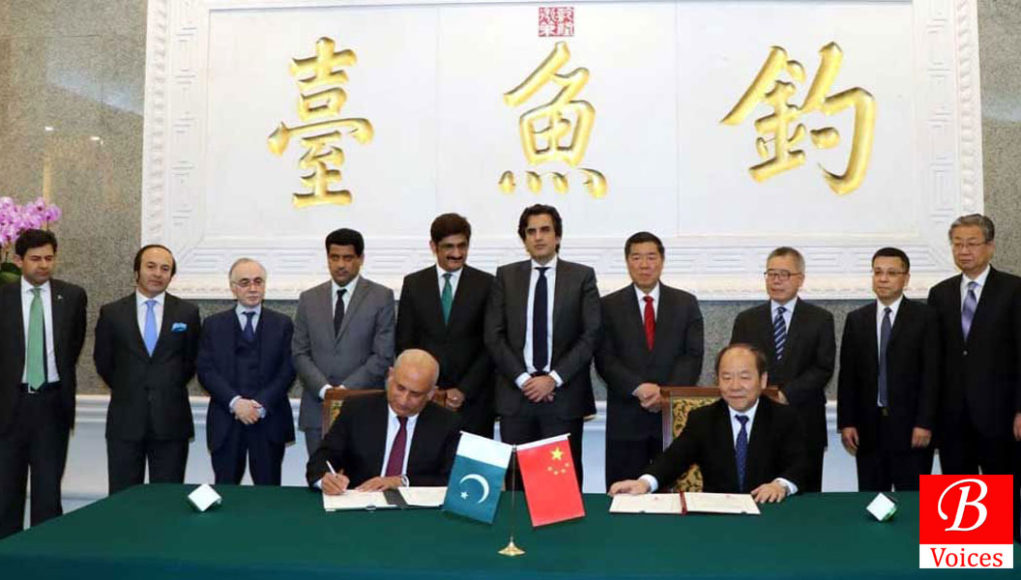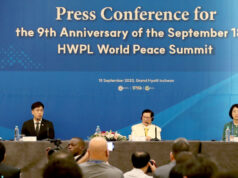Adnan Aamir
Ever since the inception of the China-Pakistan Economic Corridor (CPEC) in April 2015, politicians, journalists and academics have raised concerns that Balochistan is not getting its due share as far as the distribution of CPEC projects is concerned. Previously, this type of criticism would be brushed under the carpet by the PML-N government. The former provincial government of Balochistan also toed the line of the Centre and did not object to the way in which CPEC was being managed by the PML-N government. All that changed when the Balochistan Awami Party (BAP) came to power in the province.
BAP was founded in dramatic circumstances in March 2018. Comprising turncoats from the PML-N in Balochistan, the BAP emerged as the leading party in the province. While it is alleged that the BAP is a creation of the establishment, the party nevertheless adopted an unapologetic, independent stance on CPEC. The BAP government, led by Chief Minister Jam Kamal, openly claimed that the federal government has deprived Balochistan of its due share in CPEC resources.
Saeed Hashmi, a senior leader of the BAP, claimed that the western alignment of CPEC, which would pass through Balochistan, has been excluded from the agenda. Jam Kamal also endorsed the same line and claimed that there has been no development in the province under the CPEC umbrella. The provincial chief of the PTI, Sardar Yar Muhammad Rind too endorsed this stance.
In the second week of December, the CPEC Cell of the Balochistan government delivered a detailed presentation to the Balochistan provincial cabinet. The cell studied hundreds of source documents to prepare the presentation. It revealed that the province had been excluded from CPEC development projects and most of the promises made by the previous federal government amounted to little other than deception.
As a response to these shocking discoveries, the Balochistan government started adopting a tougher stance on CPEC. Kamal announced an end to the policy of transferring the ownership of lands in Balochistan to Chinese companies. A new law was approved by the provincial cabinet, which bars the sale of land to any foreign company. Now, land can only be provided on lease, which can be cancelled anytime. This policy decision marked a shift in the provincial government’s stance towards CPEC.
Zahoor Buledi, Balochistan’s Minister for Information, told Newsline that the previous federal and provincial governments are responsible for the fact that Balochistan is not being treated fairly under CPEC. “Now our government will press for a greater share for Balochistan in CPEC and we will not compromise on our stance,” he added.
Coincidentally, on December 20, the eighth meeting of the Joint Coordination Committee (JCC) of CPEC was held in Beijing. The JCC is the top body that meets annually to take decisions regarding CPEC. CM Kamal refused to attend the meeting in protest and as a pressure tactic. Instead, he designated Zahoor Buledi to head Balochistan’s delegation. Prior to traveling to Beijing, Buledi said that in the meeting, he would push for Balochistan’s inclusion in CPEC’s socio-economic development projects.
The eighth JCC meeting concluded on the note that Pakistan and China would increase industrial cooperation under CPEC and focus more on socio-economic development and poverty alleviation. However, a source in the Balochistan government said, on the condition of anonymity, that not even a single one of the nine projects proposed by Balochistan, were approved at the meeting. “There was no major breakthrough for Balochistan,” said the official.
The outcome infuriated the Balochistan government. On December 21, the provincial assembly session focused solely on the topic of CPEC. Kamal expressed his displeasure over the way Balochistan was being treated by the federal government as far as CPEC was concerned. “Balochistan’s current share in CPEC is just 4.5 per cent and excluding Gwadar Port and the HUBCO power project, this becomes just one per cent,” he said in a session of the provincial assembly.
During the session, the BNP-Mengal’s leader, Sanaullah Baloch, tabled a resolution demanding that the federal government constitute a national commission to settle the unfair distribution of CPEC funds and projects. This resolution was adopted by the house unanimously, sending out a strong message to the federal government.
The resolution demands that Balochistan be provided its share in CPEC based on area, and that legislation be drafted to control the adverse effects of population influx after CPEC projects are completed. Similarly, another resolution passed in the assembly demanded that the federal government make the CPEC agreements public. The passing of these resolutions marks a vote of no-confidence against the federal government in matters relating to CPEC.
The responsibility for the unjust treatment of Balochistan in terms of the distribution of CPEC projects lies on the shoulders of former Prime Minister Nawaz Sharif and his nationalist allies, Mahmoud Achakzai and Hasil Bizenjo. Sharif and his development wizard Ahsan Iqbal diverted CPEC projects to Punjab. Even projects that had nothing to do with CPEC trade corridors were brought under the CPEC umbrella. All projects were diverted to Punjab at the expense of Balochistan. At that time, Achakzai and Bizenjo remained silent on this injustice because they were Sharif’s coalition partners.
The outcome of the eighth JCC meeting and Balochistan’s demand to form a national commission on CPEC means that the controversy surrounding the acclaimed corridor will linger on. This will not only invite the ire of the Chinese, but may also affect the progress of CPEC projects. Now, the ball is in Imran Khan’s court. He can either continue the policies of of his predecessor and ignore the complaints of the Baloch, or he can take a stand and address their grievances. If he chooses the former, then the critical voices and rebellious decisions of the Balochistan government will be one of the major challenges for his already fragile government.
Originally published in Newsline magazine
Share your comments!








